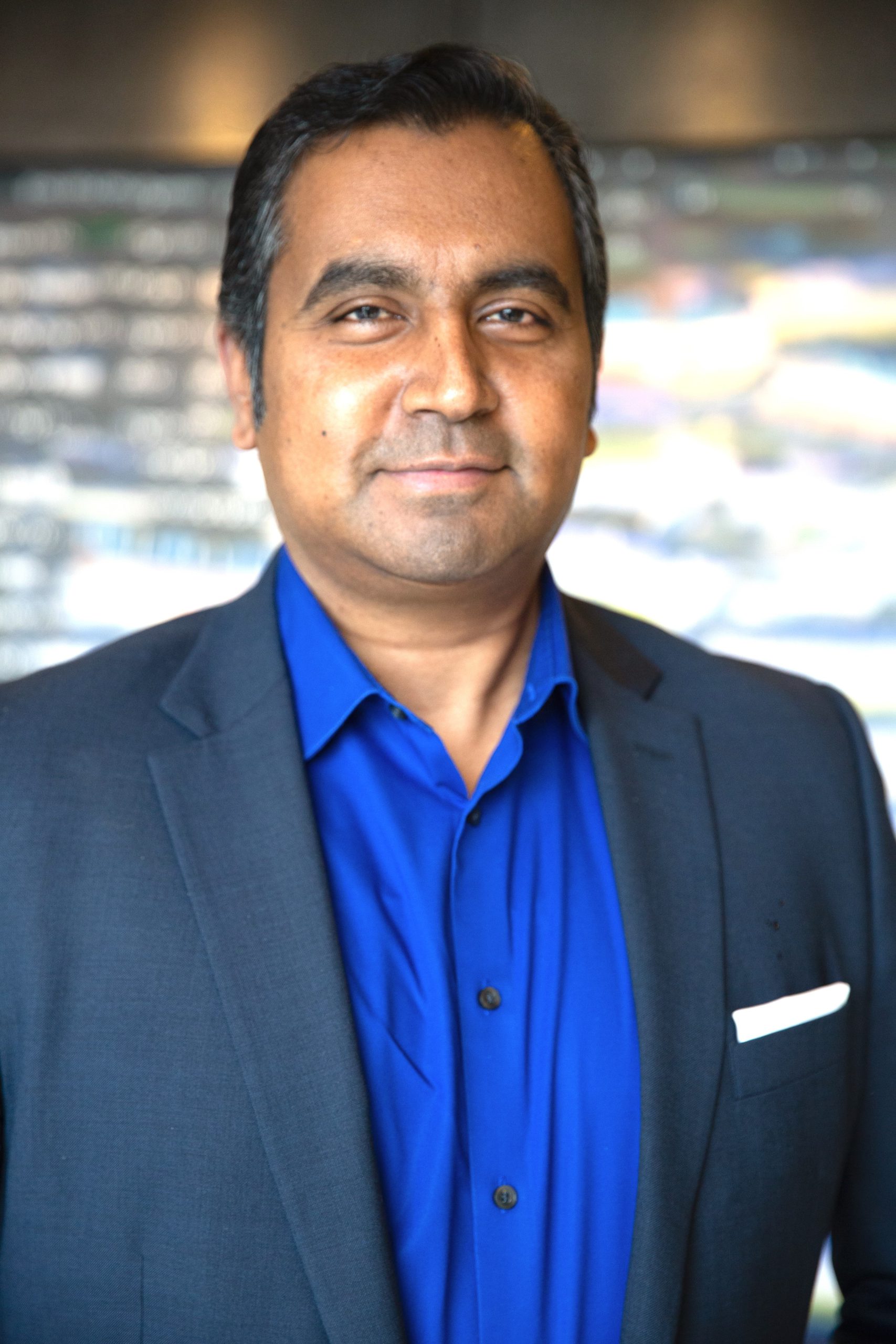Decoding AI’s Promise With NOVA AI Expert, Santosh Srinivasaiah
AI’s rapid evolution is revolutionizing industries and presenting both opportunities and challenges. To understand this shift, NOVA Workforce’s Reza Karimi sat down with Santosh Srinivasaiah, an adjunct faculty member at NOVA Workforce, who shared insights on navigating the AI landscape and preparing for its impact on our future:
What is Artificial Intelligence (AI) and how does its processing speed compare to the human brain?”
Artificial Intelligence, or AI, is like a super-fast brain made of computer parts instead of human cells. While the neurons in our brains need time to process information, the transistors in computers can work much faster. For example, while a neuron in our brain takes about five milliseconds to react, a silicon transistor in a computer can operate almost a million times faster. This means a computer designed to think like a human brain could potentially process thoughts and learn a million times faster than we do. It’s hard to fully grasp what this speed could allow AI to achieve, but it could dramatically change how quickly and efficiently computers can solve problems, learn new things and understand the world around them.
Given AI’s rapid evolution, how do you foresee its future in the upcoming years and decades?
The combination of AI and neuroscience offers transformative potential across various sectors, particularly in addressing challenges faced by quadriplegics, soldiers, veterans and trauma survivors. Here’s how AI, integrated with neuroscience, can significantly impact these areas:
- Mental Workload: AI can be used to monitor cognitive load and mental stress in real-time by analyzing neurological data. This is beneficial in high-stress professions like military and emergency response roles. AI systems can suggest interventions or breaks when stress levels are too high, thereby preventing burnout and enhancing decision-making capabilities.
- Assistance for Quadriplegics: AI-driven neuroprosthetic devices and brain-machine interfaces (BMIs) represent a major breakthrough for individuals with severe physical disabilities, such as quadriplegics.
- Support for Soldiers and Veterans: AI can play a critical role in diagnosing and treating conditions commonly faced by soldiers and veterans, such as PTSD or brain injuries. By analyzing patterns in brain activity, AI can help in early diagnosis and in tailoring personalized treatment plans.
- Trauma Survivors: AI-enhanced therapies can offer significant support to trauma survivors. By using algorithms that learn and adapt to an individual’s response patterns, AI can provide customized therapeutic sessions, potentially even in real-time, to help manage symptoms of anxiety, depression and PTSD.
The significance of these developments in AI and neuroscience cannot be overstated, especially in their capacity to improve quality of life, enhance rehabilitation processes and support mental health. My work in this area aims not only to push the boundaries of what these technologies can achieve but also to ensure they are accessible and beneficial to those who need them the most, including disabled individuals, veterans, and trauma survivors.
AI has great potential, but many worry about its impact on jobs. What’s your perspective?
AI’s potential to eliminate jobs is a real worry, but not all hope is lost. It’s true that some occupations and tasks may become automated, but it seems unlikely that a group of AI assistants will replace us all. Although some employment may be lost, studies by the World Economic Forum suggest that AI could open new career prospects. The key is to adapt to and embrace the changes brought by AI.
What specific AI skills are vital for companies to stay competitive in this evolving landscape?
To stay competitive, companies require various AI-related skill sets. Here are some of the most sought-after:
- Data Engineering and Management: This involves designing, implementing and maintaining infrastructure for data storage, processing and analysis.
- Machine Learning and Deep Learning: These skills are crucial for developing and implementing models for predictive analytics, pattern recognition and decision-making.
- Natural Language Processing (NLP) and Understanding: Companies need these skills to develop chatbots and virtual assistants, automate customer support and analyze unstructured data like customer feedback or social media data.
- Computer Vision: This is key in industries like manufacturing, healthcare and retail, allowing automation of tasks such as product quality control, medical image analysis and visual search.
- AI Ethics and Governance: As AI systems become more integrated into business operations, ethical practices and responsible use of AI technologies are essential.
- AI Strategy and Business Integration: Companies need professionals who can align AI initiatives with strategic goals, manage AI projects and ensure effective integration of AI technologies into business processes.
- Soft Skills: In addition to technical skills, companies need people with strong critical thinking, creativity and problem-solving skills.
What role can community colleges play in fostering AI skills among students to meet the growing demand?
Community colleges can play a significant role in preparing students for the AI revolution. They’re like the unsung heroes of education; offering accessible, lifelong learning and affordable training for students to become proficient in AI technologies. One way they can do this is by developing AI-specific associate degrees, credit and non-credit courses and even certificates designed to equip students with the necessary skills to thrive in the AI workforce.
In essence, community colleges play a pivotal role in meeting the growing demand for AI professionals. They democratize AI education by making it accessible and affordable for a diverse range of students. So, the next time you hear someone say “AI,” remember it’s not just big tech companies and Ivy League schools leading the charge—it’s also your local community college.
Santosh Srinivasaiah is a seasoned educator with NOVA Workforce. He currently serves as vice president of data science and analytics at Diaconia. With more than 17 years at Booz Allen Hamilton as a senior lead scientist specializing in data science and computational neuroscience, Santosh also teaches at NOVA Workforce through StrategyUS, a VCCS educational partner.

Submitted by:
Reza Karimi, NOVA Workforce Program Manager, mkarimi@nvcc.edu
